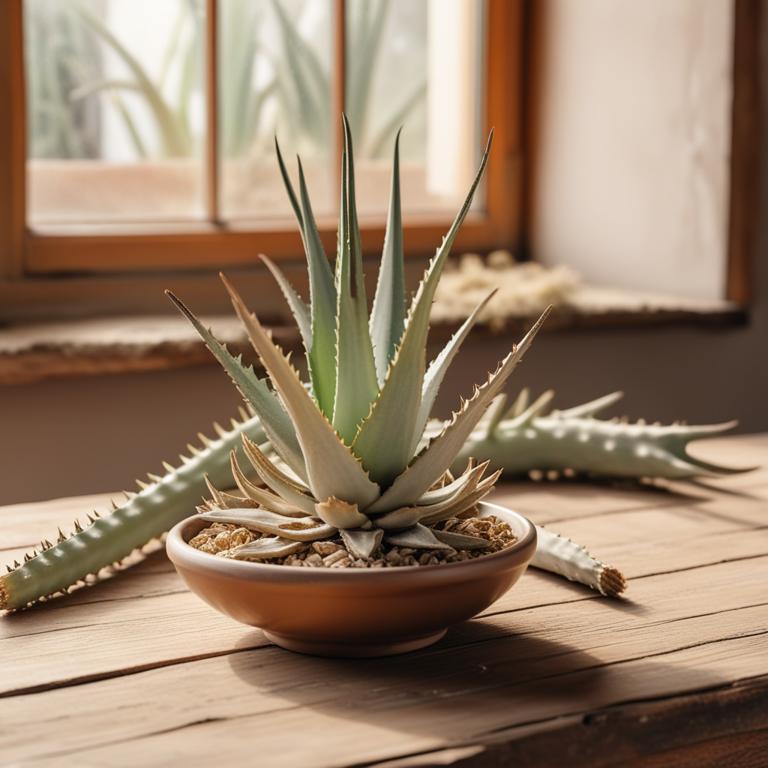Updated: Dec 1, 2024
White Tongue: Causes and Remedies Using Medicinal Herbs and Preparations
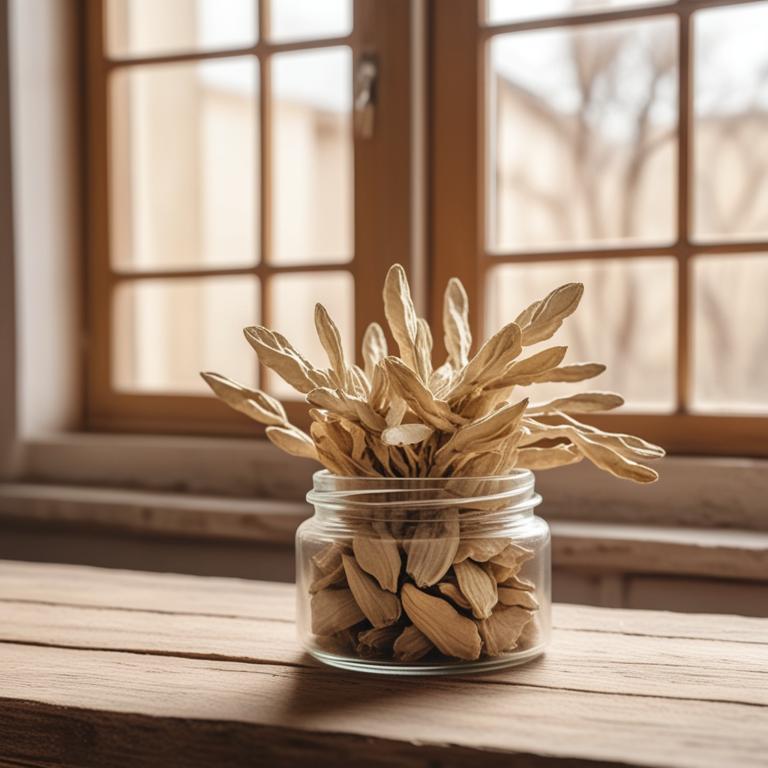
White tongue is a condition where the surface of your tongue turns white or yellowish, often accompanied by bad breath and a coating on the tongue.
It can be embarrassing and affect your self-confidence, especially in social situations. White tongue can be caused by poor oral hygiene, smoking, diabetes, and certain medications. When you have white tongue, it's often a sign of an underlying issue. Some people may experience an imbalance of bacteria in the mouth, while others may have a fungal or viral infection. To treat white tongue, you can try using herbs that have antibacterial and anti-inflammatory properties.
For example, aloe vera can help soothe the mouth and reduce inflammation. Licorice root has antibacterial properties that can help kill off the bacteria that cause white tongue. You can use these herbs in various forms, such as teas, tinctures, or mouthwashes. Drinking aloe vera tea or licorice root tea can help soothe the mouth and reduce inflammation. You can also make a mouthwash by mixing aloe vera gel with water or licorice root tincture with water.
Some people also use herbal toothpaste that contains aloe vera or licorice root to help prevent white tongue.
Table of Contents
- What are the contributing causes of white tongue?
- What are the advantages of herbal remedies for white tongue?
- What are the main medicinal herbs for the condition known as white tongue?
- What are the leading herbal preparations used in the treatment of white tongue?
- Are there any herbs that are not recommended for people with a white tongue?
- FAQ
What are the contributing causes of white tongue?
The main causes of white tongue are often related to issues within the mouth.
Bacterial overgrowth is one common cause, where the normal balance of bacteria in the mouth gets disrupted, allowing bad bacteria to multiply and cause inflammation, leading to a white coating on the tongue. Poor oral hygiene is another key factor, as not brushing or flossing regularly can allow bacteria and food particles to accumulate on the tongue, causing a white tongue.
Oral thrush is a fungal infection that can also cause a white tongue, it's often seen in people with weakened immune systems, such as those with diabetes or HIV/AIDS. Fungal infections, including candida, can also cause a white tongue, often due to an overgrowth of the fungus in the mouth. Smoking is another cause, as it can reduce blood flow to the mouth, allowing bacteria to thrive and cause inflammation.
Candida is a type of fungus that can also cause a white tongue, often in people who have a weakened immune system or take antibiotics, which can disrupt the balance of good bacteria in the mouth and allow candida to overgrow.
What are the advantages of herbal remedies for white tongue?
Using herbs to treat white tongue can be very beneficial.
They can help to reduce the appearance of the white patches, which can be caused by a buildup of bacteria or dead cells. These herbs can also help to soothe and calm the mouth and throat, reducing any discomfort or pain.
Additionally, they can have antifungal properties, which can help to combat any underlying infections that may be contributing to the condition. Some herbs can also help to improve digestion, which can prevent the buildup of toxins in the body that can cause white tongue. Furthermore, they can have anti-inflammatory properties, which can help to reduce any swelling or redness in the affected area.
This can make them a natural and effective way to manage the symptoms of white tongue.
What are the main medicinal herbs for the condition known as white tongue?

If you have a white tongue, it's probably because of a buildup of bacteria or dead cells on the surface.
Herbs can help to get rid of this buildup and soothe your tongue. One good herb is Zingiber officinale, or ginger. It has anti-inflammatory properties that can help to reduce swelling and ease any discomfort in your tongue. Cinchona officinalis, or cinchona bark, is another useful herb. It contains quinine, a natural antiseptic that can help to kill bacteria on your tongue and prevent infection.
Echinacea purpurea, or coneflower, is a herb that's often used to boost the immune system. If your white tongue is caused by an underlying infection, this herb can help your body fight it off more effectively. Cinnamomum zeylanicum, or Ceylon cinnamon, is a warm and comforting herb that can help to soothe a sore tongue. It has antibacterial properties that can help to reduce the buildup of bacteria on your tongue. Finally, Glycyrrhiza glabra, or licorice root, is a herb that's often used to soothe digestive problems, but it can also be used to calm a sore tongue. It has anti-inflammatory properties that can help to reduce swelling and ease any discomfort.
These herbs can be used in various forms, such as teas, tinctures, or infusions, to help alleviate the symptoms of a white tongue.
What are the leading herbal preparations used in the treatment of white tongue?
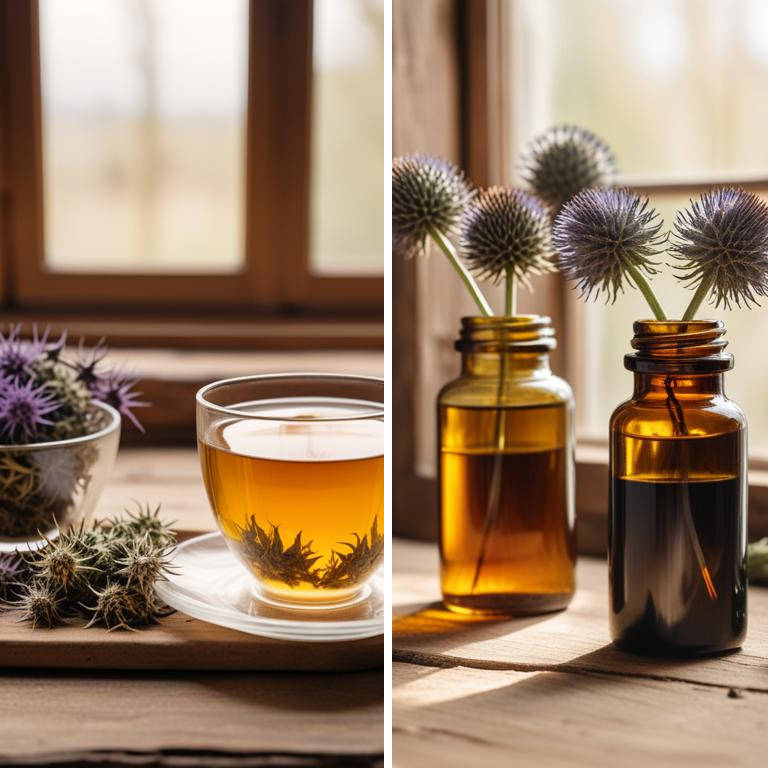
If you're dealing with a white tongue, there are some herbal preparations that can help.
A decoction of turmeric root is a good option because it has anti-inflammatory properties that can reduce swelling in the tongue. You can also try drinking a tea made from licorice root, which has been shown to soothe and calm the mucous membranes in the mouth.
A tincture of aloe vera is another possibility, as it has anti-bacterial properties that can help prevent infection. An infusion of slippery elm can be used topically to create a protective barrier on the tongue, making it more comfortable to eat and drink.
And, applying a salve made from myrrh can help to reduce inflammation and kill off any bacteria that may be causing the problem.
Additional Resources:
Are there any herbs that are not recommended for people with a white tongue?
If you have white tongue, it's a good idea to be careful with certain herbs that can make things worse.
Ginkgo biloba, for instance, can be a bit of a stimulant, and if you're already dealing with an overactive tongue, it might make things more uncomfortable. Valeriana officinalis, on the other hand, is known to cause dry mouth, which can lead to even more irritation on your tongue.
Hypericum perforatum, also known as St. John's Wort, can cause your mouth to become even drier and more sensitive, which won't help with the white tongue. Aconitum carmichaelii is a bit of a tricky one, as it can cause numbness or tingling in the mouth, which might not sound bad, but can actually make your tongue feel even more uncomfortable. And Taraxacum officinale, or dandelion root, can cause digestive issues, which can then lead to even more mouth dryness and irritation on your tongue.
These herbs might not be the best choice if you're trying to manage white tongue symptoms.
FAQ
Are there any specific herbs that can prevent white tongue?
Some herbs may help prevent white tongue.
For example, turmeric contains curcumin, which has antibacterial properties. It can reduce inflammation and kill bacteria that cause the condition. Another herb is neem, which has antifungal and antibacterial properties.
These herbs may help keep the mouth healthy and prevent white tongue.
Is it safe to use herbal remedies for white tongue during pregnancy?
When you're pregnant and have a white tongue, it's best to be careful with herbal remedies.
Some herbs, like goldenseal and echinacea, can cause problems if taken in large amounts or combined with other things. It's also not known if they affect the baby.
Always talk to your healthcare provider before trying any new remedy.
Are there any herbs that can reduce the frequency of white tongue?
Some herbs may help reduce the frequency of white tongue.
Turmeric, for example, has natural antibacterial properties that can help balance the oral bacteria. Ginger is also known to have anti-inflammatory properties that can soothe the tongue and mouth.
Consuming these herbs in the form of tea or adding them to meals may have a positive effect.
Can i combine different herbal remedies for white tongue?
You can combine different herbal remedies for a white tongue, but be cautious.
Mixing herbs can be unpredictable. For example, combining slippery elm with aloe vera might soothe your tongue, while adding peppermint could freshen your breath.
Experiment with small amounts and observe the effects, but avoid overusing or combining strong herbs.
Related Articles

Causes and Herbal Remedies for Toothache Pain

Reddened Corners in Mouth: A Review of Medicinal Herbs and Herbal Preparations
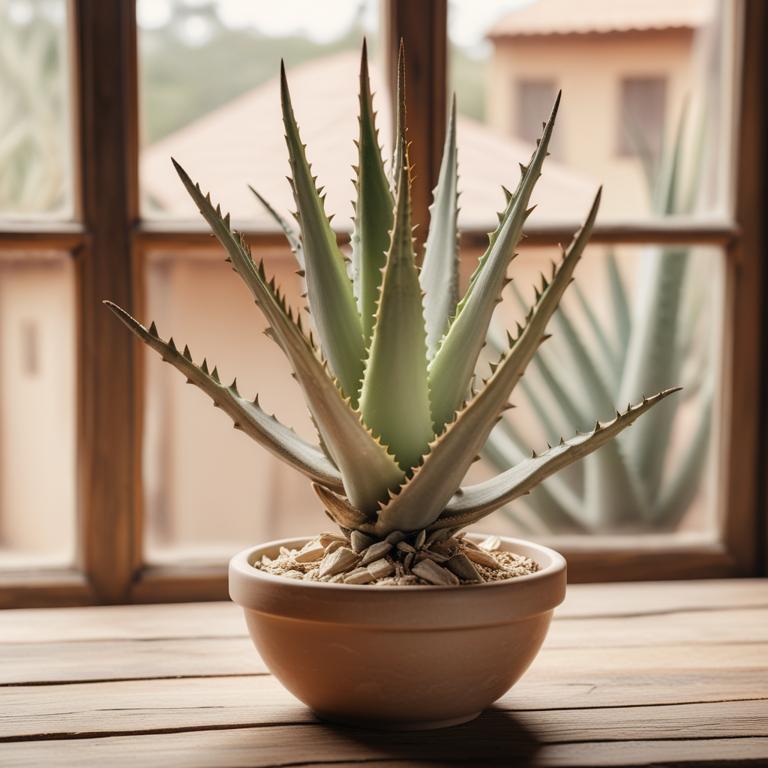
Causes and Herbal Remedies for Psoriasis: A Comprehensive Guide
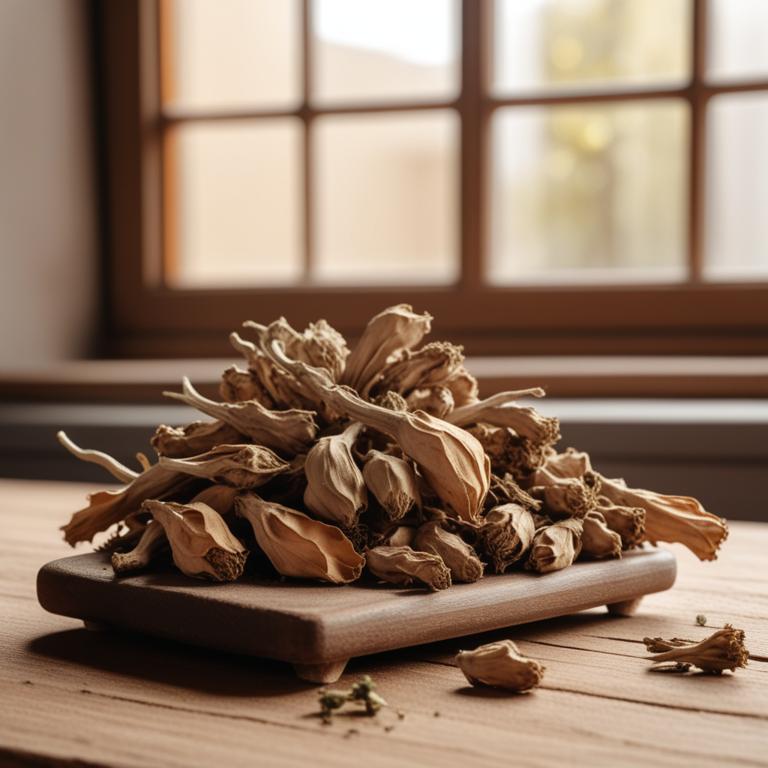
Understanding Pimples: Causes, Symptoms, and Natural Remedies with Medicinal Herbs and Preparations
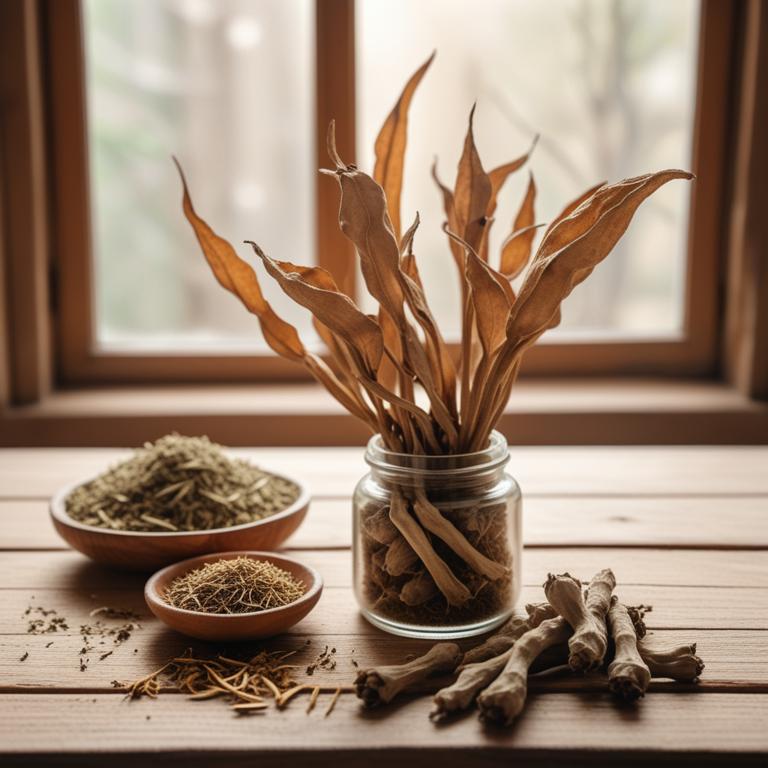
Tooth Decay: Causes, Prevention, and Herbal Preparations
